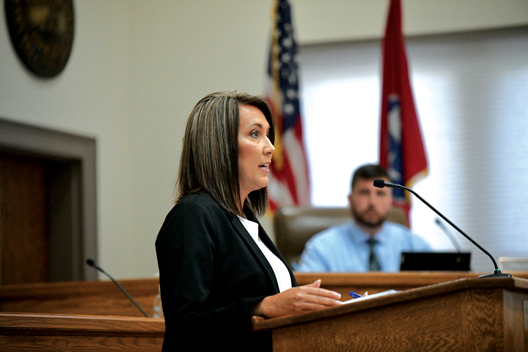County looks at new way to sell real estate
Published 2:14 pm Saturday, January 10, 2015
Carter County soon may have a new way of handling things when it comes to selling excess real estate properties.
During the November meeting of the Carter County Commission, the building and grounds committee proposed the sale of some properties that had been deemed excess. County Mayor Leon Humphrey said there were several excess properties in the county that needed to be sold so they could be placed back on the tax rolls to generate funding for the county.
Several commissioners raised questions regarding the properties regarding right-of-way issues and whether any county use could be found for the land. Ultimately, the decision on whether to sell the parcels was postponed to allow more time for the commission to research the issue.
After that meeting, County Attorney Joshua Hardin worked with Humphrey to draft a procedure detailing how the sale of real property is to be handled. He presented the procedures to the Financial Management committee last week.
“The goal of this is to keep it flowing properly going forward so these properties don’t stack up,” Hardin said.
The attorney explained to committee members that state law sets different requirements for disposing of county-owned real estate based on how the county obtained the property — whether by deed or by delinquent tax sale.
Properties that are acquired through delinquent tax sale require the county to take more steps in order to sell the property, Hardin said, including a 10-day period after the public auction where other interested parties may submit sealed bids to attempt to top the auction day price. The county must also hold onto property acquired this way for a period of at least one year under state law as a “redemption” period for the previous owner.
Under Hardin’s proposal, properties acquired by deed can be sold at any time at the discretion of the commission if it is declared to be excess. In order to do that, the property must first be presented to the building and grounds committee who will review the property and vote to declare it surplus real estate. The committee chair will then present the full commission.
Properties acquired through tax sale will be researched by the attorney after the conclusion of the one-year redemption period. The attorney will then present the property information to the full commission.
Once properties of either kind are submitted to the commission for consideration, each commissioner will be given a packet of information on the property.
“At the second full commission meeting after the information is distributed, approximately 60 days later, the full county commission will discuss any potential county uses for the property and vote on whether or not to proceed with the sale of each property,” Hardin said. “That would five every commissioner the chance to investigate the property on their own.”
Once the full commission votes to sell the property, the county attorney will then work with the finance director to arrange a public auction for the property.
Properties obtained through a deed will be sold to the highest bidder on the day of the auction, Hardin said.
For properties obtained through delinquent tax sales, Hardin said he and the finance director would work with the county trustee to determine a fair sale price for each parcel to set as a reserve price at the auction. Under state law, Hardin said, the price is required to be at least equal to the total amount of taxes, costs, penalties and interest due to the county.
Once the auction is held on tax sale properties, notice of the proposed sale of the parcel must be advertised in the newspaper and for 10 days after the advertisement anyone can submit a sealed bid to the finance department to attempt to purchase the property. For a sealed bid to be considered, it must be an increase of at least 10 percent over the auction day sale price.
If no one submits a qualifying sealed bid, Hardin said the property will be sold to the auction day winner. However, he said, if a qualifying sealed bid is submitted, the original auction will must be notified and then the original bidder and the person who submitted the sealed bid will meet in a bid off for the property.
“Some of these steps go beyond what is required but we want to make sure we are meeting that base line,” Hardin said.





